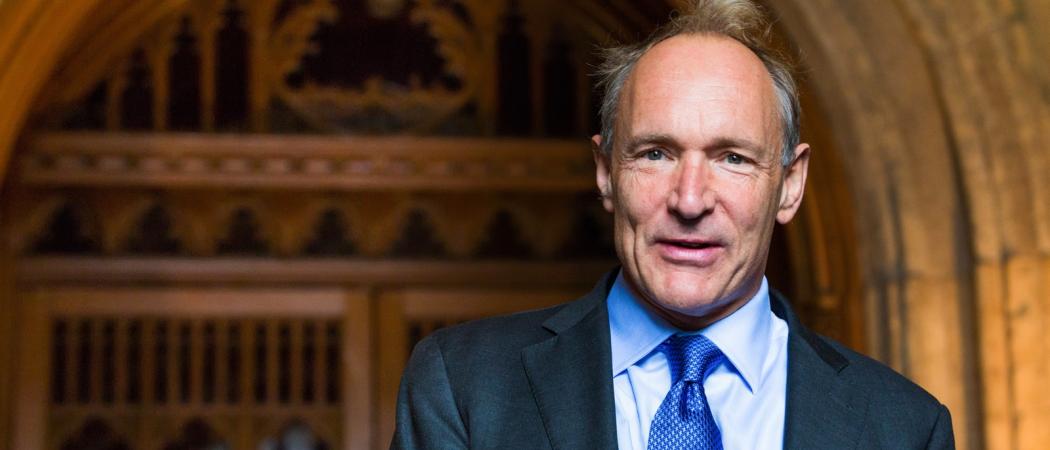Tim Berners-Lee says he doesn’t know what the internet will look like in 30 years, but urges users to demand more control of their data

Sir Tim Berners-Lee
Thirty years ago this week Tim Berners-Lee submitted a proposal, dubbed “vague but exciting” by his supervisor at CERN, for what would become the world wide web.
Speaking at the Science Museum in London on Wednesday to mark the occasion, Berners-Lee reflected on how his invention had become the world’s most powerful medium for knowledge, communications and business.
Back in 1989 the idea was to build a system for organising and sharing data about physics experiments without needing, “a central authority you had to go to for permission to do stuff,” Berners-Lee said. He has never directly profited from his invention and said, “If you had to pay for it, it wouldn’t have taken off.”
In recent years, Berners-Lee has reckoned constantly with some of the consequences of his creation. "I couldn't have predicted some of the nasty things," he said. The internet is going down the wrong track, with social media sites now a major battleground for coordinated bots and dirty politics.
“Your view of the world is being run by an algorithm. The news I see, it determines how I vote, how I study. If you’re not sure what goes on, then call for social networks to be less opaque,” Berners-Lee said. He has become a campaigner for greater privacy for users and more accountability from tech giants for fake news and abuse of personal data. The web should be reclaimed from corporations including Google, Facebook and Twitter that are rapidly consolidating power, and returned to its democratic roots.
In an open letter published this week, Berners-Lee identified three major "sources of dysfunction" affecting the online world: deliberate malicious intent, system design and unintended negative consequences of benevolent design.
The first, he said, stems from issues like state-sponsored hacking and criminal behaviour; the second from business models "that commercially reward clickbait and the viral spread of misinformation"; and the last creates problems such as, "the outraged and polarised tone and quality of online discourse."
Berners-Lee is an adviser on a social network site called MeWe, which he said allowed users to extract and move their data. “It’s one of the companies where there is a privacy ‘bill of rights’. They respect your data,” he said.
Asked what the internet will look like in 30 years, Berners-Lee said, “Making predictions is a fool’s errand.” His own wish is to see the development of an internet that is a “great debate place” and apps that help foster “civilised discussion down the pub”.



 A unique international forum for public research organisations and companies to connect their external engagement with strategic interests around their R&D system.
A unique international forum for public research organisations and companies to connect their external engagement with strategic interests around their R&D system.